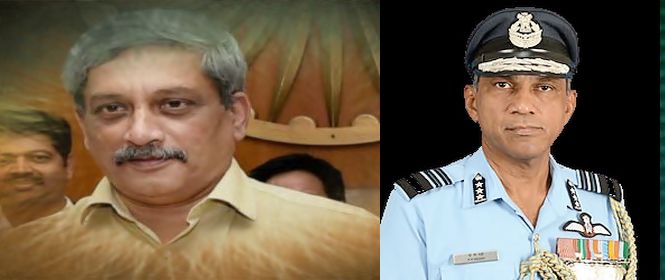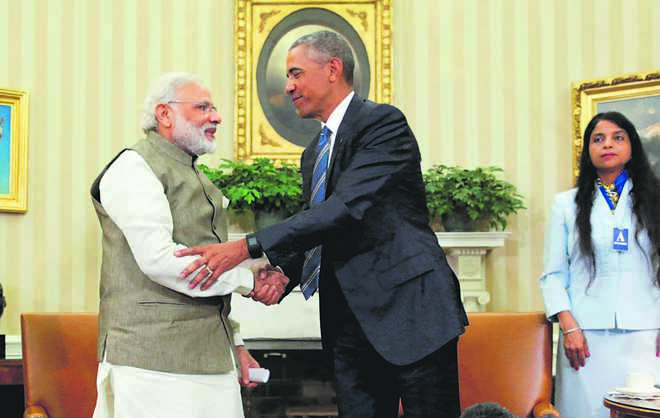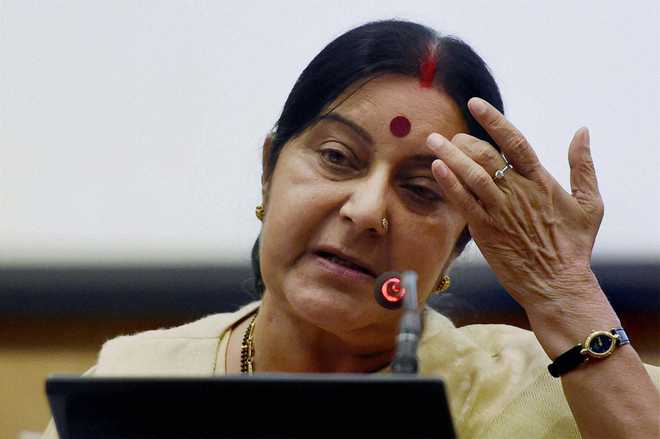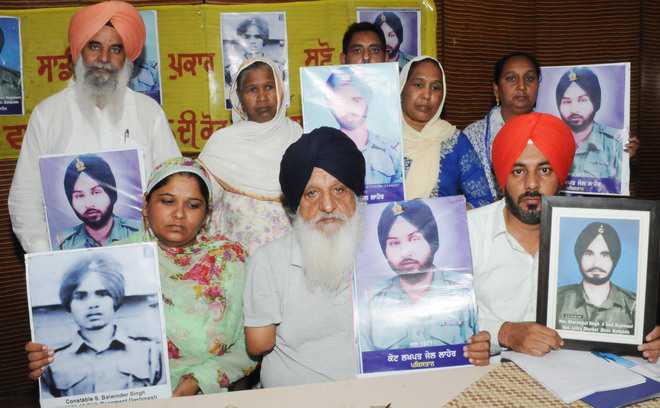U-TURN Beijing mutes opposition a day after saying India’s application not on Seoul agenda; US reinforces support
BEIJING: Hours after Washington reiterated its support for New Delhi’s bid to join the Nuclear Suppliers Group, China toned down on Tuesday its opposition to India’s admission to the elite club, saying members were open to discussing the inclusion of countries that are still to sign the Non-Proliferation Treaty (NPT), a nuclear arms control pact.
The position adopted by China marked a shift from its assertion on Monday that India’s application to join the 48-nation NSG was not on the agenda of the organisation’s plenary in Seoul on June 23-24.
“The door is still open within the NSG for non-NPT members to join,” foreign ministry spokesperson Hua Chunying said. “There is always room for discussion.”
“We did not target any country, India or Pakistan. We only care about the non-proliferation treaty,” she said, suggesting that the topic of including non-NPT countries in the NSG could “probably” come up during the plenary.
China, which is perceived to be acting at the behest of its “all weather ally” Pakistan, has blocked India’s bid by linking it to the NPT. Neither India nor Pakistan has signed the NPT. Days after India applied, Pakistan responded with a bid of its own to join the NSG. Indian sources said they were making every effort to get into the club, making realistic assessments of hurdles and devising means to overcome them.
Prime Minister Narendra Modi too will take up the issue with Chinese President Xi Jingping on the sidelines of the SCO summit in Tashkent on June 23.
As the Americans and the Japanese continued to work the phone lines to drum up support for India, reports suggested foreign secretary S Jaishankar is likely to travel to Seoul to marshal Indian efforts to get membership of the NSG. But the sources admitted that while China remained the biggest challenge, there were some other countries, including Austria and Ireland, which have reservations about a non-NPT member being admitted to the exclusive club.
“We are working the phone lines, convincing members about our impeccable non-proliferation credentials and remain hopeful of becoming a member of the NSG. Of course, such negotiations go down to the wire,” a source said. The NSG functions by consensus and opposition from even one member will mean that India will not be able to gain entry. The NPT is the “cornerstone” of the NSG and the nonproliferation regime, Chinese foreign ministry spokesperson Hua said. “The NSG members should focus on whether the criteria (of admitting new members) should be changed,” she said, underlining fears that such a move could have implications for the Iran nuclear deal and the situation in North Korea.
The US, she said, was the country which made the rule that non-NPT countries should not be allowed to join the NSG.
But on Monday, the US again called on NSG members to back India’s application in Seoul. “We believe, and this has been US policy for some time, that India is ready for membership and the US calls on participating governments to support India’s application,” White House spokesman Josh Earnest said.
India enjoys most of the benefits of membership under a 2008 exemption to NSG rules granted to support its nuclear cooperation deal with Washington.
Other than China, no other nation is openly backing Pakistan because of its track record. The father of its nuclear weapons programme ran an illicit network for years that sold nuclear secrets to countries, including North Korea and Iran.
An op-ed in the Chinese state-run Global Times tried to downplay Islamabad’s role in the proliferation of nuclear secrets. “Actually, the proliferation carried out by Pakistan was done by Abdul Qadeer Khan, Pakistan’s chief nuclear scientist, and was not an official policy of the Pakistani government,” it said.



































































